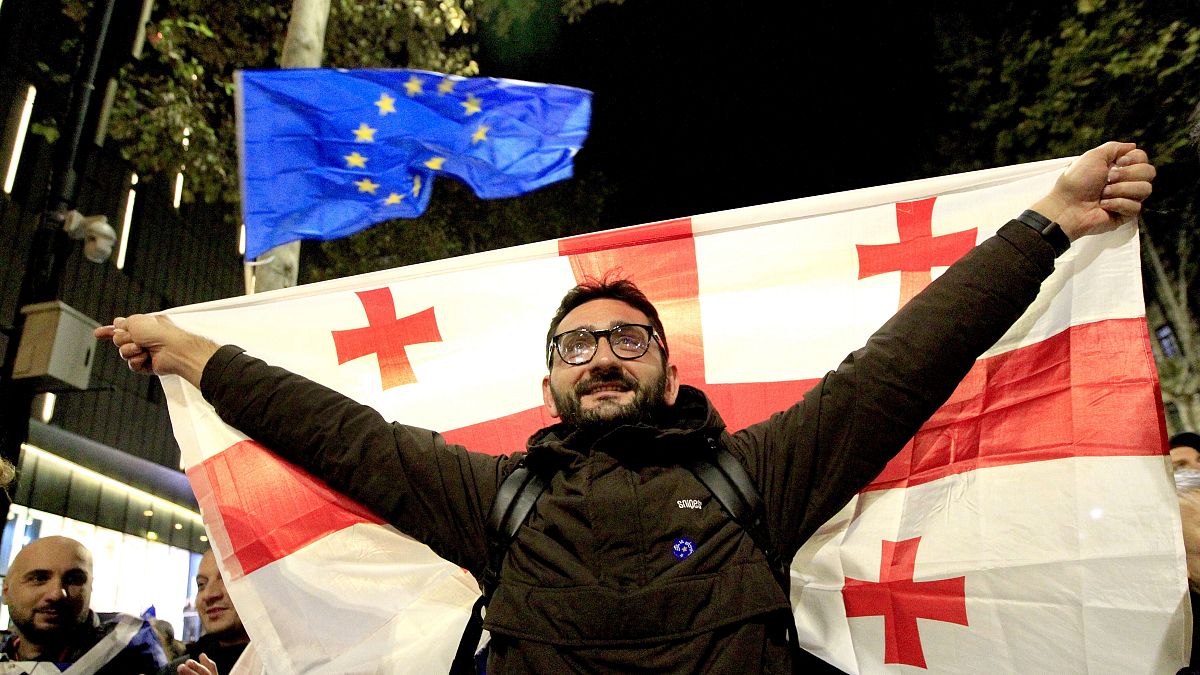Tens of thousands of Georgians recently participated in a rally in the capital city of Tbilisi, expressing their desire for the country to join the European Union. The event took place just a week before parliamentary elections, scheduled for 26 October, that are considered crucial in determining whether Georgia will maintain its pro-European stance or gravitate towards Russia. The rally aimed to emphasize unity and support for Georgia’s European future, amidst concerns that the ruling Georgian Dream party is undermining the country’s chances of joining the EU.
Following the European Union granting Georgia candidate country status last year, opposition supporters have raised concerns about controversial legislation passed by the government. One such law, signed by the parliament speaker, pertains to anti-LGBTQ+ rights and bans same-sex marriages, adoptions by same-sex couples, and gender-affirming care. Critics argue that the legislation marginalizes the LGBTQ+ community and is linked to a rise in hate crimes in the country. Another controversial law, referred to as the foreign agent law, requires media organizations and NGOs receiving foreign funding to register as foreign agents, drawing parallels to Russian legislation targeting political opponents.
The passage of these laws has led to criticism from the European Union and stalled Georgia’s progress towards EU accession. President Salome Zourabichvili, who opposes the legislation, has reiterated her pro-European stance and commitment to aligning with European values. The Georgian Dream party, which introduced the contentious laws, continues to maintain its popularity in opinion polls, with expectations for a substantial share of the vote in the upcoming elections. Despite this, many Georgians express concerns about the country moving closer to Russia’s influence after decades of independence following the Soviet Union’s collapse.
The rally in Tbilisi showcased a unified front in support of a European future for Georgia and opposition to legislative measures viewed as detrimental to the country’s democratic values and EU aspirations. Criticism from within the country and internationally, particularly from the EU, indicates a growing divide between the government and its citizens on issues related to human rights, media freedom, and political transparency. As Georgia approaches a critical juncture with the upcoming elections, the outcome will likely shape the country’s geopolitical orientation and its trajectory towards either continued European integration or a potential shift towards aligning with Russia.
The Georgian population’s participation in large numbers in the rally exemplifies the deep-rooted desire for a European future and adherence to democratic principles. The controversy surrounding the anti-LGBTQ+ and foreign agent laws has sparked debates about Georgia’s commitment to human rights and European values, with calls for the government to reconsider its stance to avoid further alienation from the EU. The upcoming elections will serve as a litmus test for the country’s democratic institutions and the extent to which the ruling party reflects the will of the people in shaping Georgia’s path forward. Georgians remain hopeful that their voices will be heard, and their aspirations for a European future will be upheld amidst ongoing challenges and political uncertainties.










